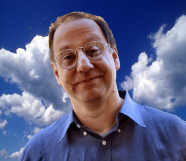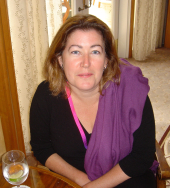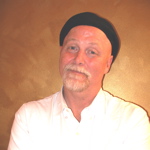Note: this program was broadcast on KYOU, open source radio. Check it out!
Three Internet gurus talk with ThoughtCast about the “social architecture” of the web, and how it might bring people together, and/or pull them apart! The four of us spoke following a daylong conference on the subject.
 David Weinberger is a fellow at the Berkman Center for Internet and Society at Harvard University, as well as the man behind Joho the Blog. He is also the author of “Small Pieces, Loosely Joined: A Unified Theory of the Web” and “The Cluetrain Manifesto,” and is currently working on a new book, “Everything is Miscellaneous.”
David Weinberger is a fellow at the Berkman Center for Internet and Society at Harvard University, as well as the man behind Joho the Blog. He is also the author of “Small Pieces, Loosely Joined: A Unified Theory of the Web” and “The Cluetrain Manifesto,” and is currently working on a new book, “Everything is Miscellaneous.”
 Chris Nolan, an independent, online journalist, is a former member of the mainstream media, and is known to have coined the phrase “stand alone journalism.” As the founder of Spot-on, a web site featuring diverse voices across the political spectrum, she embodies this practise of “stand alone” independent journalism on the web.
Chris Nolan, an independent, online journalist, is a former member of the mainstream media, and is known to have coined the phrase “stand alone journalism.” As the founder of Spot-on, a web site featuring diverse voices across the political spectrum, she embodies this practise of “stand alone” independent journalism on the web.
 Stowe Boyd is president and chief operating officer of Corante, a new media company devoted to promoting social software on the web. A self-described “media subversive,” Stowe also pens the blog Get Real on Corante, in addition to his personal blog, A Working Model.
Stowe Boyd is president and chief operating officer of Corante, a new media company devoted to promoting social software on the web. A self-described “media subversive,” Stowe also pens the blog Get Real on Corante, in addition to his personal blog, A Working Model.
Click here:  to listen (29:30 mins).
to listen (29:30 mins).
And there’s more: Corante has recently launched Corante Hubs and the related Corante Network.
Podcast: Play in new window | Download
Subscribe: RSS

Hi Adam,
Thanks for the spirited comment! A toast to the out-of-doors, away from seductive screens of any kind, be they TV or PC. (And yes, I do know what Flickr is, but my audience might not…) I will say that I don’t use Flickr; perhaps this is heresy, but too bad.
-Jenny
The participants in this conversation were disturbingly absorbed so deep in the web, they didn’t even understand the broader issue of human interaction beyond the internet that was the topic of the conversation. They pooh-poohed the concept that online social interaction was not equivalent to human personal interaction. They got impatient at the interviewer when she didn’t know what flickr was. They said the internet was good for social interaction and took people away from staring at the mind-numbing TV screen. (And they didn’t even see the irony of this last statement.) They even had the gall to scoff at the interviewer when she said TV and the internet BOTH take people away from getting out in the fresh air and meeting for coffee and kids’ soccer.
They seemed to be the poster children for “Don’t fall too deep into the Internet or this could happen to you!” I think I’ll log off for a while and see what’s on TV, it seems safer!
On Joho the Blog, Dec 7, David Weinberger had this comment to make:
“Chris Nolan, Stowe Boyd and me on ThoughtCast:
Jenny Attiyeh’s podcast site is featuring an interview she did with the three of us at the social software conference a couple of weeks ago. I haven’t listened to it, but I remember being particular depressed and snappish — the Internet is being murdered and my ThinkPad had just broke — but, fortunately, Chris and Stowe were delightful.”
Now what’s interesting here is that in the interview, David expressed concern that the Internet might be murdered — conditional future tense — and that the forces that might do so haven’t really woken up yet to the threat the web poses to business as usual. So why the switch? What’s going on out there to prompt the use of the present tense???
Your input is in demand.
Cheers,
Jenny